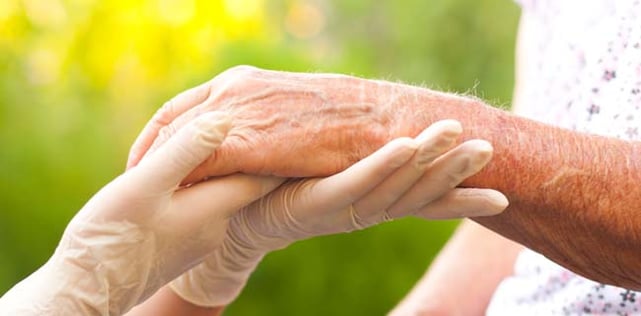The Dangers of Unrecorded Care
If a loved one is receiving care from a family member or hired caregiver, how do you know their needs are consistently being met? Can you be sure they are safe? Do you know they are being well taken care of?
When care is recorded, the answers to these questions are ensured. Documented care means relevant detailed written and oral communication between caregivers, health professionals, agencies, insurance agents and families about the care. Under the supervision of caregivers, seniors are helped with activities of daily living (ADLs) that are necessary for a healthy and safe independent living. Without documentation proving these tasks are performed it is difficult to know what care is provided and how regularly.
Why Does Documentation Matter?
The obvious: The health and safety of senior care recipients hinge on the assurance that caregivers are providing ALL tasks necessary for long-term care. Recorded care can be key to a quality continuum of care, and being able to alert coordinating organizations like Home Health, Primary Care Physicians, Care Managers and Hospice (and family) in order to prevent any or additional ER
visits.
In addition, if you are paying for care, good documentation will prove whether or not the level and quality of care is of value. When it comes to paying for long-term care, you may be fortunate to have a long-term care insurance policy. Once a claim is started, documentation of senior care is necessary to keep it active. Long-term care insurance representatives need thorough reports of what type of care is provided. With a long-term insurance policy, you will only maintain your funding if you can provide documentation.
Documenting care can guarantee proof of care, the soundness of care investment, the coverage of long-term care insurance, and it can also provide you with peace of mind. Nothing is more reassuring than hearing or seeing a report of job well done.
Types of Documentation
Assessments are initial surveys recipient’s care, health needs and environment before care is received. This type of documentation details exactly what kinds of care- and how much of it- a senior needs. By communicating written and oral assessments, health professionals and non-medical care providers establish expectations of care and cost of care.
Caregiver Credibility is key to the guarantee of quality care. Before caregivers are hired and placed into seniors’ homes, they must be fully vetted. Amada Senior Care documents this through criminal and background checks, reference checks, phone and in-person interviews and orientations. Documented certifications also add to caregivers’ credibility.
Care Plans take a step forward from assessments and establish the number, sequence and quality of tasks to be performed by caregivers. These plans outline exactly what a caregiver will do for a senior every day. Perhaps a senior needs certain medications at particular times. The care plan will clarify this. If a doctor orders an hour of exercise for a senior every day, caregivers can refer to the care plan to see when and how it should happen. Care plans make logging tasks after they are performed easier, and lets caregivers know everything they need to accomplish before their shift is done.
Reports can be written or oral. When a caregiver finishes providing care to a senior,
documentation should occur. This can take the form of a list of tasks performed and notes regarding them, or conversations caregivers have with their supervisors about their work.
How Technology Can Help
By the power of the internet, families can monitor the care of their elderly loved ones remotely. For families that live far away from senior loved ones, technology offers a way for them to access documentation of their long-term care. Sensors, like movement detectors, can be placed strategically throughout seniors’ homes to track seniors’ activity during the day. Activity patterns can be logged and relayed to family members via a smartphone app as well. Learn more about this type of technology at www.BeClosewithAmada.com.
To keep in touch with their elderly loved ones, families can also take advantage of Amada Senior Care’s Transparent technology. Transparent is an online portal system where families can log on at any time of the day to see exactly what duties caregivers have performed. Did Mom take her medication today? Did Dad take a shower? These are things that can be tracked with Transparent.
Through a combination of these various forms of documentation, you and the seniors you love will avoid the dangers of unrecorded care. Caregivers and providers will thrive and maintain quality work performing the aid that seniors need, while documenting a long record of good service. This is a benefit to you and anyone else involved in the long-term care of loved ones.
Call Amada Senior Care at 480-999-5250 or visit www.AmadaSEValley.com



 Will you be the caregiver for your aging parent? If so you will providing them the gift of remaining in their home as their health declines. Many American families are choosing to provide care for the elderly at home. Caregivers often report that they were surprised they weren't ready for some aspects of their caregiving role. Are you mentally and emotionally ready for these 5 caregiver duties?
Will you be the caregiver for your aging parent? If so you will providing them the gift of remaining in their home as their health declines. Many American families are choosing to provide care for the elderly at home. Caregivers often report that they were surprised they weren't ready for some aspects of their caregiving role. Are you mentally and emotionally ready for these 5 caregiver duties?